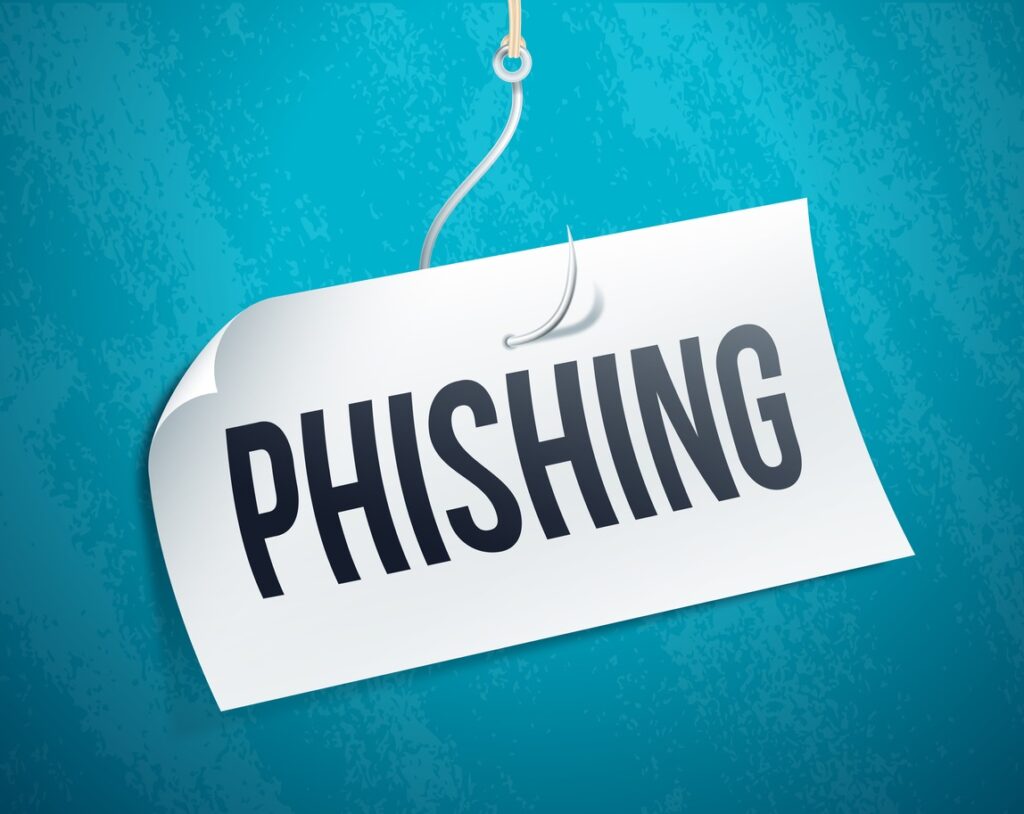
According to the FBI, more than 114,000 people fell victim to phishing schemes in 2019, collectively losing around $57 million. With the holiday season quickly approaching, phishing schemes will inevitably increase. Phishing is a method of identity theft that provokes individuals into giving up personal information. These types of schemes typically come in the form of a text, email, or website. It’s important to understand what phishing is, what it looks like, how you can be prepared for it, and what to do if you fall victim to one of these tricks.
What does Phishing look like?
Phishing scammers attempt to gain your trust by replicating the logos of well-known companies or pretending to be a friend or family member. Typically, scammers try to scare their victims by implying that if they don’t take action, there will be an unwanted consequence, such as a frozen bank account. Another common method involves a scammer setting up a website that looks identical to a major bank’s website and sending out emails requesting the recipient’s bank information.
Beware of exceptionally good deals, unknown or unusual senders, incorrect spelling or grammar, and hyperlinks or attachments. One way to determine if an email or text is legit is to check the grammar. If Amazon emails you, the chances of it having misspelled words or poor grammar is low. You should also always check the email address of the sender to ensure it matches who they’re claiming to be.
Phishing schemes can also include stories that try to trick you, such as claiming they’ve noticed suspicious activity on your account. Other common stories can include an issue with your account and payment information or they may ask you to confirm personal information.
How to Protect Yourself from Phishing
There are several ways you can protect yourself from these attacks, but the best tactic is to always play it safe. If you’re unsure as to whether an email is a phishing attempt or not, it’s better to assume it is. Call the company or person yourself and ask if they sent you the text or email. You should install security software to protect your computer and set your devices to update automatically. You should also use strong passwords and avoid using public Wi-Fi.
Another way to protect yourself is to install Two-Factor authentication for your accounts, especially your bank and email accounts. Two-Factor authentication requires a code or passphrase be sent to your mobile phone or email address. It could also be in the form of face or retina scanning. It’s nearly impossible to hack an account with Two-Factor authentication. Even if someone acquires your login information, they wouldn’t be able to get past the second verification step.
What to do if You’ve been Hacked
If you become aware that your email, bank, or social media accounts have been hacked, try logging in and changing the password. Be sure to use a strong password or passphrase. If you are unable to login, you should research what your account provider recommends you do to gain access to your account. If you believe your bank account was hacked, you should contact the bank directly to freeze your accounts and determine the next steps.
In summary, there are various ways a scammer can try to access your personal information. It’s crucial that you know what to look for and what to do if you are hacked. By using strong passwords or passphrases, upgrading your systems software, and adding Two-Factor authentication, you can lower your chances of falling victim to a phishing scheme.
Sources:
https://www.consumer.ftc.gov/articles/how-recognize-and-avoid-phishing-scams
https://www.consumer.ftc.gov/articles/how-recover-your-hacked-email-or-social-media-account
About Us
Partners in Financial Planning provides tax-focused, comprehensive, fee-only financial planning and investment management services. With locations in Salem, Virginia and Charleston, South Carolina, our team is well-equipped to serve clients both locally and nationally with over 100 years of combined experience and knowledge in financial services.
To learn more, visit https://partnersinfinancialplanning.com
